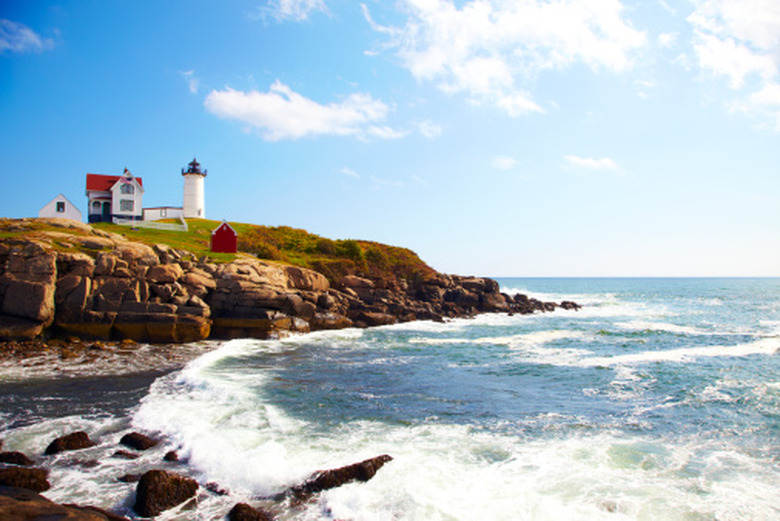List Of Fun Facts About The Water Cycle
Water is an important resource and makes up a large portion of the world in which we live. It can be found in liquid form in lakes, streams, rivers and oceans. Water can also be found in solid form in glaciers and ice caps or as a gas in the air, creating mist and clouds. Water's is a world of endless variety and change and can be very exciting to learn about.
Water Makes Up a Huge Percentage of the Earth
Water Makes Up a Huge Percentage of the Earth
Seventy-five percent of the Earth is covered in water. Ninety-seven percent of this water is found in oceans, which means that it is salt water and not drinkable. Two percent of this water is frozen into glaciers or ice caps. This means that only 1 percent of the Earth's water is accessible to humans for drinking.Trees are made up of 75 percent water as is the human brain.
What Does Water Do?
What Does Water Do?
Water controls the temperature of the Earth as well as the human body. Water helps the human body to rid itself of wastes, protect organs and tissues and cushion joints. It also carries oxygen and nutrients to cells. People can live for about a month without food but only for a week without water. Water is made up of the elements oxygen and hydrogen.
How Does Water Act?
How Does Water Act?
Water boils at 100 degrees Celsius, or 212 degrees Fahrenheit. It freezes at 0 degrees C or 32 degrees F. Frozen water is lighter than liquid water because ice expands by 9 percent when it freezes. This is why ice floats on top of water. Water is a part of a system called the water cycle. It is continually recycled through processes of evaporation, condensation, precipitation and collection. This means that there is the same amount of water on Earth today as their was when the planet was formed.
Water and the Environment
Water and the Environment
Water can become polluted through human activities and accidents like agricultural run-off, sewage, industrial waste and oil spills. Because water is part of a system, whatever humans put into the ground or sky through manufacturing can pollute water. According to the Environmental Protection Agency, the average U.S. home uses about 50 gallons of water a day per person. In medieval times, the estimated water use per person was 5 gallons per day.
Cite This Article
MLA
Sinclair, Miranda. "List Of Fun Facts About The Water Cycle" sciencing.com, https://www.sciencing.com/list-fun-water-cycle-8293737/. 24 April 2017.
APA
Sinclair, Miranda. (2017, April 24). List Of Fun Facts About The Water Cycle. sciencing.com. Retrieved from https://www.sciencing.com/list-fun-water-cycle-8293737/
Chicago
Sinclair, Miranda. List Of Fun Facts About The Water Cycle last modified March 24, 2022. https://www.sciencing.com/list-fun-water-cycle-8293737/
